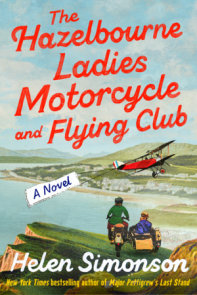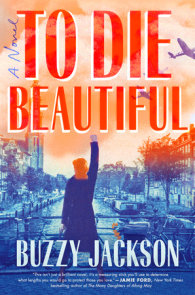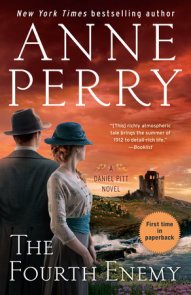READERS GUIDE
Discussion Questions for The Sea Between Two Shores by Tanis Rideout1. In her author’s note, Tanis Rideout talks about the first sparks of this novel igniting while she was visiting the island of Tanna in archipelago of Vanuatu. She describes dismissing the idea, initially, but gradually finding her way into the story. What do you imagine were some of the specific challenges Rideout, as a white settler in Canada, might have come up against in telling this story?
2. The novel begins during a cyclone that ultimately leads to the death of Ouben—the event that prompts the Tabé family to invite the Stewarts to the island for a reconciliation ceremony. But where does the story begin for the characters in the novel? For example, does it begin when Faina first visits the missi? When the missi first arrive on Iparei? Or perhaps even before that? If you were to put yourself into the minds of various characters in the book—David, Rebecca, Michelle, Zach—where might each of them think the story started?
3. In her author’s note, Rideout writes, “I thought long and hard about whose voices should appear in the novel, and different drafts contained different points of view. I initially wrote only from the Canadian family’s perspective, but that left out too many voices and perspectives.” How do you think the story and its impact would be different if it never showed the world of the novel through the perspectives of Faina, Rebecca, David, or Jacob?
4. Which characters did you find most relatable? Which did you find more difficult to connect with or understand? How do you think your own identity influenced your experience of the characters and their perspectives?
5. Why do you think Rideout chose not to include any chapters written from Josephine’s or William’s perspective? What did you learn or see from reading about the past events from Faina’s perspective that may not have been possible to convey from Josephine’s or William’s view?
6. We can infer a lot about William and Josephine through Faina’s view of them. For example, we might surmise that Josephine is a somewhat unconventional Euro-Canadian woman of the nineteenth century. Yet her behaviour suggests she is very much indoctrinated in colonialist views that dehumanized and disregarded the people of Iparei, even as she is subject to William’s mistreatment of her and, in a broader context, the limitations of patriarchy. How did you feel about Josephine? Which qualities of her character are reflected in her descendants, especially Joyce and Michelle? And what has changed?
7. What is the significance of Faina’s attraction to writing and recording that keeps drawing her back to the missi? How do you think gaining that knowledge changed Faina and her people? What evidence in the present day of the story suggests how that knowledge evolved on the island?
8. Zach engages in another form of recording—video, through his phone. What connections could be drawn between Josephine’s drawings of the women of Iparei and Zach’s viewing of the world through his phone’s camera? What does the novel have to teach us about whose stories get recorded, how stories are recorded, and how knowledge and wisdom is transmitted?
9. The first night Michelle joins the women in the nasara, having done her research about what to bring, she presents her hosts with her plastic bag of gifts—pens, notebooks, water bottles, and CN Tower flashlights. Why do you think Rebecca, Bridely, and the others are perplexed by her offering? What is suggested by Michelle’s reaction to their indifference?
10. When Michelle learns that Scott wants the family to move, her resistance to the idea prompts a reflection on her life. “What has she ever wanted that she didn’t get?” the narrator writes. “She has a husband, a family, a successful career, and when it all happened for her, it didn’t surprise her, it just seemed her due . . .” Michelle attributes her previous good fortune to luck, and thinks that her luck ran out when Dylan died. What is Michelle not seeing about her so-called good fortune? How might Rebecca receive the idea that Michelle’s luck had run out?
11. Michelle believes Rebecca can help her, and seems to be confounded by her host’s unwillingness to absolve her of grief and guilt over Dylan’s death. Why does Rebecca resist helping Michelle? What parallels might be drawn between Michelle’s expectations of Rebecca and Josephine’s transactions with Faina?
12. When Rebecca takes Michelle to the cave, she does so because of the changes she has seen in Anaei in preparation for the ceremony and in excitement over her friendship with Astrid. She notes that Anaei doesn’t understand yet “that there is a balance to be found between sharing and protecting.” What feelings came up for you in this scene, as you read about Rebecca’s connection to that sacred place and watched Michelle through her eyes?
13. While they are at the cave, Rebecca gives voice to a crucial fact: that Ouben would not have died if he had been Michelle’s son. Michelle is silent in response. What do you think Michelle hears and understands in that place? Are there any revelations for Rebecca?
14. We learn details about how Dylan died through the telling of the story by Scott, Michelle, and Zach at various points in the novel. And yet, still a sorrowful kind of mystery surrounds the young boy’s death. In what ways does the portrayal echo experiences you might have had of grief, personally, or in your family or community?
15. Rebecca and Michelle deal with their grief quite differently. Rebecca’s cultural traditions (for example, washing Ouben’s body, wearing the braided vine around her neck, and the family ceremony to mark the anniversary of his death) seem to help her integrate grief into her life and the life of her family. Michelle’s grief, in comparison, seems disorganized and destructive. How do both women and their family members ultimately come to terms with their respective losses?
16. Ancestors are a recurring presence in the novel. During the reconciliation ceremony, David welcomes their ancestors and says, “They planted gardens that we might harvest them, they built roads that we might be connected. It is our duty to ensure the same is true for our children, and their children, and theirs.” Rebecca, David, and their community express a living relationship with those of the past, one that affects the unfolding of life in the present. How does the Tabés’s sense of obligation to their ancestors relate to their invitation to the Stewarts to the reconciliation ceremony? What do the Stewarts learn about their ancestors and obligation through their time in Iparei?
17. Many characters observe that Michelle is always saying “sorry.” At the reconciliation ceremony, David talks about how “asking for forgiveness, agreeing to change and move forward together” are not the same as doing—that their gathering represents the start of action and obligations to each other to carry forward in the world. What do you think motivates Michelle’s gift of Dylan’s trust and her offer to provide for Anaei? Is this a moment of redemption for Michelle? Why or why not?
18. Two parent-child relationships are fractured—the one between David and Jacob and the one between Michelle and Zach. What needs to happen for each of these characters to be able to repair the relationships?
19. It is said that there can be no reconciliation without truth first. What truths need to be accepted in this story, and by whom, before there can be reconciliation within it? In the novel, who is responsible for reconciliation, and is it achieved? What do you think is the author’s view of reconciliation, what it means for us both personally and systemically?
20. The end of the novel signals an economic future for the island, along with a way for Jacob to stay most meaningfully connected with his family and his ancestors through his connection to place on the island. Jacob and Zach have developed a brotherly relationship, and Anaei and Astrid’s friendship continues. The novel reaches this hopeful conclusion, but where do you think this story ends?






















